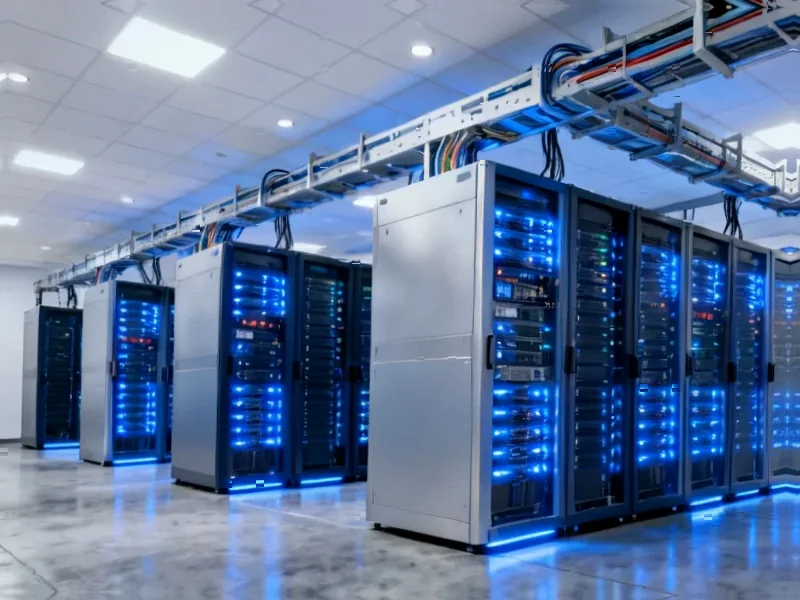According to Neowin, Microsoft will invest more than $7.9 billion in the UAE from 2026 through 2029, including $5.5 billion in AI and cloud infrastructure capital expenses and nearly $2.4 billion in local operating expenses. This builds on Microsoft’s existing $1.5 billion equity investment in G42, the UAE’s sovereign AI company, and previous infrastructure investments totaling over $4.6 billion. The company has secured critical export licenses from the Biden administration to ship the equivalent of 21,500 Nvidia A100 GPUs already, with additional licenses for 60,400 more advanced chips. Microsoft will use this infrastructure to provide regional access to advanced AI models from OpenAI, Anthropic, and other providers. This massive commitment signals a fundamental shift in global AI strategy.
The Geopolitical Chessboard
Microsoft’s investment represents more than just business expansion—it’s a strategic geopolitical maneuver that positions the UAE as a critical node in the emerging AI cold war. The U.S. Commerce Department’s approval of GPU exports to the UAE, traditionally a sensitive technology transfer area, indicates a calculated decision to maintain American technological influence in a region where Chinese AI companies have been making significant inroads. By establishing a beachhead in Abu Dhabi, Microsoft effectively creates a U.S.-aligned AI infrastructure that could serve as a counterbalance to Chinese technological expansion across the Middle East, Central Asia, and Africa.
Market Disruption and Regional Dynamics
This investment fundamentally reshapes the competitive landscape across three continents. Amazon Web Services and Google Cloud now face intensified pressure in emerging markets where they’ve been establishing presence. More importantly, regional cloud providers and sovereign AI initiatives in Saudi Arabia, Qatar, and other Gulf states must now contend with Microsoft’s massive infrastructure advantage. The timing is particularly strategic, as many Middle Eastern governments are accelerating their digital transformation initiatives and seeking sovereign AI capabilities. Microsoft’s ability to offer both cutting-edge Nvidia hardware and access to leading AI models through OpenAI and other partnerships creates a compelling package that regional competitors will struggle to match.
The GPU Supply Chain Squeeze
The scale of Microsoft’s GPU deployment—equivalent to over 81,900 Nvidia A100 chips—represents a significant allocation of scarce AI infrastructure. This massive procurement will inevitably tighten global supply of advanced AI chips, potentially creating challenges for smaller AI companies and research institutions competing for the same limited Nvidia inventory. The move also demonstrates Microsoft’s strategic foresight in securing export licenses during a period of increasing regulatory scrutiny around AI technology transfers. This positions Microsoft to capture enterprise AI demand across three major growth regions while competitors navigate both supply constraints and regulatory hurdles.
The Sovereign AI Acceleration
Microsoft’s partnership with G42 represents a blueprint for how global tech giants will engage with national AI strategies. Rather than simply selling services, Microsoft is building infrastructure that enables sovereign AI development while maintaining strategic alignment with U.S. interests. This model allows countries like the UAE to develop domestic AI capabilities without ceding complete technological dependence to any single foreign power. The arrangement likely includes provisions for data sovereignty and local model training that address growing concerns about foreign control of critical AI infrastructure. This balanced approach could become the template for how Western technology companies navigate the complex landscape of national AI sovereignty initiatives worldwide.
Regional Economic Transformation
Beyond immediate competitive implications, this investment will accelerate the UAE’s transformation into a global AI hub, potentially creating a Silicon Valley-like ecosystem in the Middle East. The combination of massive infrastructure, access to leading models, and strategic geographic positioning could attract AI startups, researchers, and enterprises from across Europe, Africa, and Asia. This creates a virtuous cycle where talent follows infrastructure, further strengthening the region’s position in the global AI economy. The timing aligns perfectly with the UAE’s broader economic diversification efforts away from oil dependence, positioning the country as a technology leader rather than just an energy exporter.




